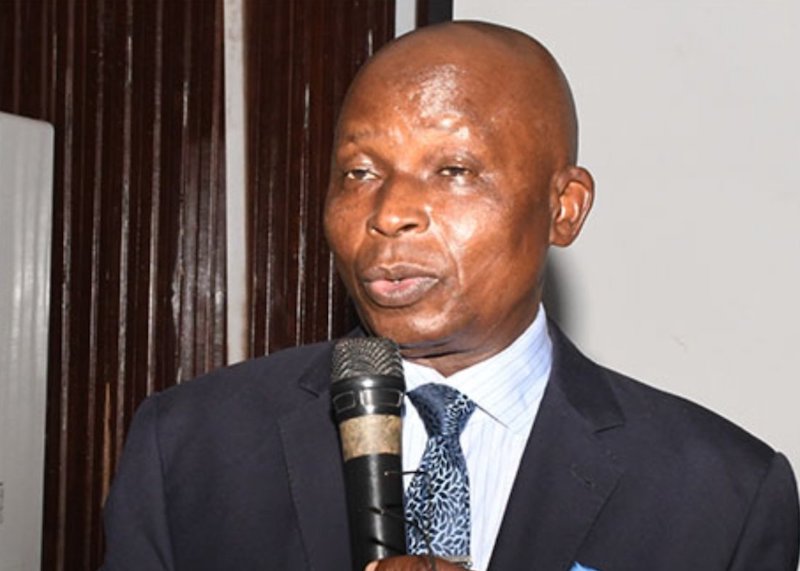I agree that it was better late than never President Muhammdu Buhari finally signed Nigeria on to the much expected African Continental Free Trade Agreement, (AfCFTA). However more than ever before there is the need for even more conscious optimism by all stakeholders for Nigeria to maximize the benefits of the new African Free Trade Agreement, and minimize the possible threats to Nigeria’s (and indeed Africa’s) economic development. I commend the decision of President Muhammadu Buhari to get the relevant inputs of businesses represented by MAN and labour ( NLC) before signing up to the $3 trillion Africa free trade agreement, last Sunday. At the last minute, on Tuesday, 21st of March, while some Forty-four (44) African countries signed on to the agreement, Nigeria, the continent’s biggest economy under the legitimate pressures of stakeholders notable Nigeria Labour Congress (NLC) and MAN (Manufacturers Association of Nigeria) commendably pulled out for further quality check and impact assessment of the new treaty. Being the largest economy on the continent with disproportional burden of unfair trade dumping and illegal imports, Nigeria’s decision to sign the deal with caution was good. President Buhari at the signing of the treaty in Niamey two weeks ago rightly advised that the continent’s nations must work together to attract investment, grow local manufacturing and combat smuggling.
The African Continental Free Trade Agreement (AfCFTA) aims to unite 1.3 billion people, creating a $3.4 trillion economic bloc that could usher in a new era of development.
All African leaders must show the proof that AfCFTA is not another top-down deal signed behind the legitimate aspirations of African peoples for a common wealth, not just common market. Not just for profit but for the African people. AfCFTA enthusiasts say it is the world’s largest free trade area “since the World Trade Organization which was formed in 1995!” And that is the first problem! The uncritical membership of World Trade Organization (WTO) of most African countries including Nigeria in the 1990s with attendant massive lowering of tariffs through wholesale trade liberalization arrested the nascent African manufacturing and development leading to massive collapse of labour intensive industries like textile and automobile due to unfair competition. How would AfCFTA foster African re-industrialization process and uplift millions out of income poverty and unemployment is a critical question begging for answer. There is no doubt that Africa needs intra-trade rather than external Aid and loans and unfavorable trade with Europe, America and China. Trade between African countries is miserably relatively low. It accounts for only 10% of all commerce on the continent – compared with 25% in south-east Asia. The African Union (A.U.) president, Rwanda’s Paul Kagame said: “This agreement is about trade in goods and services”. Yes. But only producing nations trade in goods. The painful truth is that by and large, this Africa is underperforming, bellow the productive Africa the likes of founding fathers (Nkrumah, Azikiwe, Sekou Toure etc ) had envisioned. AfCFTA must change the dumping ground narrative to production/export gains. Only South Africa with 25 per cent manufacturing value added qualifies as a trading nation. Nigeria’s 20 percent manufacturing value added (MVA) of the 80s has sharply fallen to less than 5 percent. The importance of trade for African development and transformation cannot be overemphasized. Africans must trade with themselves, generate wealth, employ their teeming unemployed youths. Trade ( fair Trade!) is better than aid and credit from abroad. International trade brings benefits to working people , but “it must have public oversight that ensures strict respect for national development agenda and rights of working people.” So far, however, previous trading agreements such as the WTO failed to deliver a global trading framework that puts the needs of the world’s people above those of global capital”. Africa commendably had initiated a number of regional economic communities ( RECs) that include, Economic Community of West African States (ECOWAS), Arab Maghreb Union (UMA), Common Market for Eastern and Southern Africa (COMESA), Community of Sahel–Saharan States (CEN–SAD), East African Community (EAC), Economic Community of Central African States (ECCAS) and Southern African Development Community (SADC). Africa should draw on the experience, achievements and pitfalls of all these regional integration groups to enrich the implementation of African Continental Free Trade Agreement, (AfCFTA).
To multiply the benefits of the CFTA for Nigeria, there is an urgent need for , a comprehensive vision of trade and development which is lacking now. The Economic Growth and Recovery Plan ( EPRG) must be reviewed to include sustainable industrial and trade policies that would take advantage CFTA offers. Nigeria must also make a case for a JUST transition period for it’s economy to take the advantage of the existing on going domestic initiatives to boast domestic production especially in rice and textile revival efforts.
IndustriALL global union of which am the Africa’s Vice President “demands a fundamental reassessment of the way in which global trade and investment flows are regulated to ensure that they work for the benefit of workers and the societies they live in. Trade and investment must ensure a more equitable redistribution of wealth between and within countries and must reject a failed neo-liberal economic ideology based on deregulation, liberalisation and privatisation that this new generation of trade agreements still supports. CFTA must ensure a fair trading framework that safeguards democratic standards and the public interest, and has the scope for social policy that puts people first, not just profits”.
Issa Aremu mni



